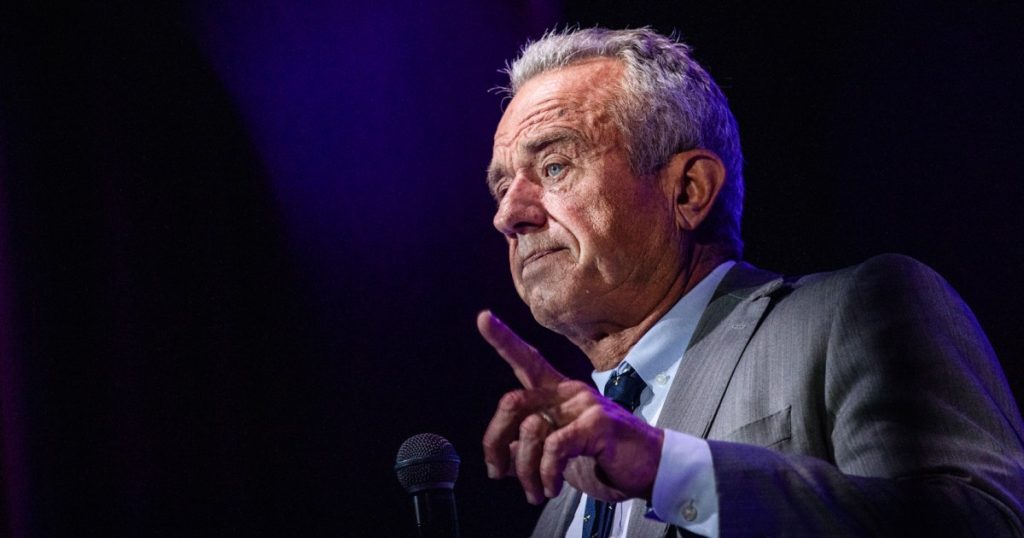The Michigan Supreme Court ruled that Robert F. Kennedy Jr. will remain on the state’s presidential ballot in November, overturning a lower court’s decision to remove him. Kennedy, who had ended his independent White House bid and endorsed Donald Trump, did not provide a specific legal basis for his removal from the ballot. Despite seeking to avoid playing a spoiler role in the race between Trump and Vice President Kamala Harris, Kennedy had fought for ballot access in the key swing state.
Michigan Secretary of State Jocelyn Benson, a Democrat, stated it was too late to remove Kennedy from the ballot, prompting him to take his case to court. Kennedy’s legal efforts caused a delay in the mailing of mail ballots in North Carolina, where he successfully appealed to have his name removed from the ballot. Michigan officials were eager for a quick resolution as the state’s ballots needed to be printed soon to comply with legal requirements for mailing military and overseas ballots by Sept. 21, and absentee ballots by Sept. 26.
In a strongly worded dissent, Michigan Supreme Court Justices David Viviano and Brian Zahra criticized the majority decision, arguing that keeping Kennedy on the ballot would only fuel distrust in the electoral system. They expressed concerns that forcing voters to consider a candidate who has already withdrawn from the race could confuse voters, distort their choices, and impact the true popular will, potentially affecting the outcome of the election. They warned that the court’s ruling would not help rebuild public trust in the fairness and accuracy of elections.
Kennedy’s efforts to remove himself from the ballot following the end of his presidential bid were met with legal challenges and delays, ultimately leading to the Michigan Supreme Court’s decision to allow him to remain on the state’s presidential ballot in November. The court’s ruling overturned a lower court decision that had agreed to remove Kennedy from the ballot. Despite concerns raised by dissenting justices about the potential impact on voter trust and the electoral process, the majority decision will allow voters in Michigan to consider Kennedy as a candidate in the upcoming election.
The decision to keep Kennedy on the ballot in Michigan comes after he had already withdrawn from the presidential race and endorsed Donald Trump. Kennedy’s efforts to secure ballot access in the key swing state were complicated by his decision to drop out and avoid playing a spoiler role in the race between Trump and Vice President Kamala Harris. The legal battle over Kennedy’s removal from the ballot highlighted the challenges faced by third-party candidates seeking to navigate the electoral process and the potential impact on voter choice and election outcomes.
Despite the concerns raised by dissenting justices about the potential confusion and distortion of voter choices, the majority decision by the Michigan Supreme Court will allow Kennedy to remain on the state’s presidential ballot in November. The ruling will enable Michigan voters to consider Kennedy as a candidate, despite his withdrawal from the race, as the state’s ballots are prepared for mailing to military and overseas voters. The decision reflects the complexity and legal intricacies involved in ensuring ballot access and voter choice in the electoral process, as well as the challenges faced by third-party candidates seeking to navigate the political landscape.


